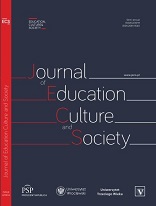Egalitarian Democracy between Elitism and Populism
Egalitarian Democracy between Elitism and Populism
Subject(s): Politics / Political SciencesPublished by: Fundacja Pro Scientia Publica
Keywords: Ranciere; democratic legitimacy; elitism; populism; epistemic proceduralism; deliberative democracy
Summary/Abstract: In his influential book Disagreement: Politics and Philosophy Jacques Ranciere builds a substantial critique of liberal regimes present in most Western countries. He finds them defective because: (1) they allow wealth and economic power of groups and individuals to influence public decision-making, making those with economic power an elite group; (2) they allow knowledge and expertise of groups and individuals to influence public decision-making, making those with epistemic power an elite group; (3) they allow and encourage social and economic conditions that make people inappropriate for decision-making on important issues, making those with certain characteristics thus acquired an inferior group. We focus on the Ranciere’s second objection by relying on Estlund’s epistemic proceduralis approach and claim that one does not have to embrace postmodernist idea of reducing reason to relations of power in order to present a substantial critique of our contemporary society. Furthermore, we argue that one does not have to base egalitarian democracy on postmodernist ideas that reject the truth-tracking potential of democratic procedures – egalitarian democracy is perfectly compatible with the idea of truth in politics.
Journal: The Journal of Education, Culture, and Society
- Issue Year: 5/2014
- Issue No: 2
- Page Range: 31-42
- Page Count: 12
- Language: English

